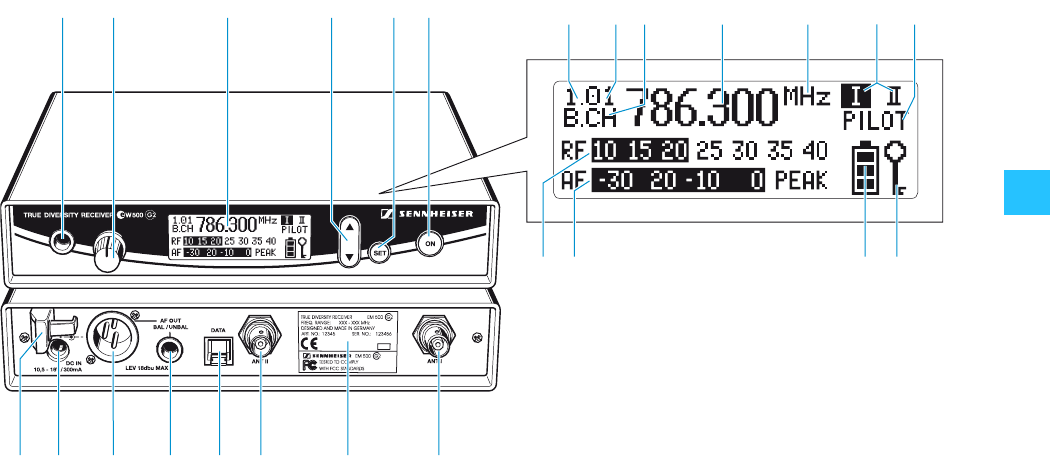
7
Overview of operating controls
»³ ·¿´ ²
ቢ
ቩ ቫቪ ቭ
ቦባ ቤ ብቨ
¶ º ¾ µ ¸ ¹ Ƹ ƹ
ቧ
Operating controls Graphic display panel
³ Headphone output (PHONES),
¼” (6.3 mm) jack socket
· Headphone volume control (VOL)
» Graphic display, backlit
¿ ̆/̄ rocker button, backlit
´ SET button, backlit
² ON button, backlit
(serves as the ESC (cancel) key in the
operating menu)
¶ Cable grip for power supply DC cable
º DC socket for connection of mains unit (DC IN)
¾ Audio output (AF OUT BAL),
XLR-3M socket, balanced
µ Audio output (AF OUT UNBAL),
¼” (6.3 mm) jack socket , unbalanced
¸ Service interface (DATA)
¹ Antenna input II (ANT II), BNC socket
Ƹ Type plate
ƹ Antenna input I (ANT I), BNC socket
ቢ Display for the current channel bank “1...8, U”
ባ Display for the current channel number “1...20”
ቤ “B.CH“ – abbreviation for channel bank and
channel number
ብ Alphanumeric display
ቦ “MHz“ – appears when the frequency is displayed
ቧ Diversity display
(antenna I or antenna II active)
ቨ “PILOT” display
(pilot tone evaluation is activated)
ቩ Level display for received RF signal “RF”
ቪ Level display for received audio signal “AF”,
with “PEAK“ warning
ቫ 4-step transmitter battery status display
ቭ Lock mode icon
(lock mode is activated)
Note:
For further illustrations and examples of the
different standard displays, please refer to the
section “Selecting the standard display” on
page 22.


















